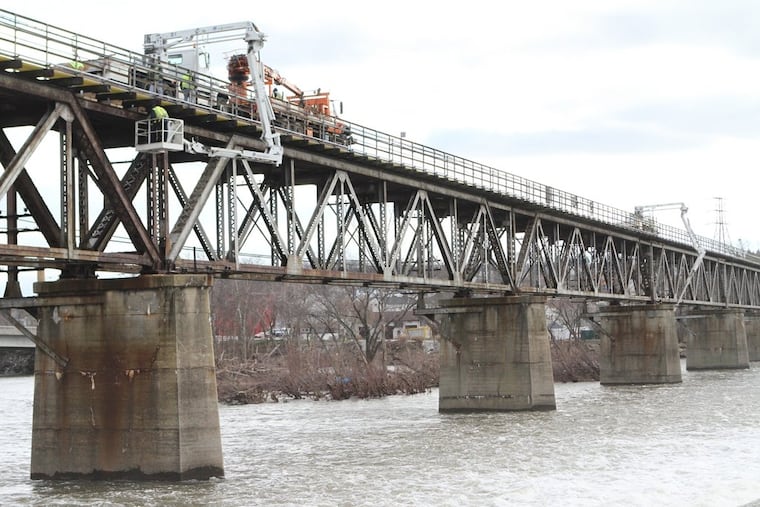SEPTA will borrow $800 million to pay for projects like station repairs and trolley upgrades
A July 1 change in how Pennsylvania pays for aid to transit systems will give SEPTA more borrowing power than it has had before.

SEPTA is preparing to sell up to $800 million in revenue bonds later this year to help fund projects such as a $35 million overhaul of a Bridgeport viaduct on the Norristown High Speed Line, rehab of subway and Regional Rail stations, and trolley modernization.
It would be the largest bond financing ever for SEPTA, made possible by a change in the way Pennsylvania pays for state aid to mass-transit systems that will allow the authority to borrow against its share of the money.
The agency’s board authorized the move Thursday afternoon at its monthly meeting.
“It’s a momentous opportunity for SEPTA to work on our state-of-good-repair backlog and invest long-term in vehicle replacement,” Richard Burnfield, the transit agency’s deputy general manager, said in an interview.
SEPTA says it has at least $4.6 billion of deferred repair needs, as well as dozens of priority projects planned, including the replacement of aging train cars on the Market-Frankford Line.
“There is no shortage of needs,” Burnfield said.
» READ MORE: SEPTA says it will forge ahead with trolley modernization in ambitious capital budget
Fares will not increase on SEPTA as a result of the borrowing, spokesperson Andrew Busch said, noting state law says transit-fare revenue can be used only for operating expenses, not capital spending.
Since 2013, another law has required the state Transportation Department to split $450 million yearly among transit services from the Pennsylvania Turnpike Commission, which has issued bonds backed by toll revenues to make the payments. Agencies like SEPTA can’t use their cut as collateral for borrowing because it’s already been committed to the toll road’s creditors.
But beginning July 1, transit agencies will instead get $400 million yearly from the state’s motor vehicle sales tax under the law, called Act 89. That money is not encumbered by debt. The turnpike’s payment to transit, a good-size driver of the road’s recent toll increases, will drop to $50 million a year.
SEPTA’s annual share of state money has hovered at around $225 million yearly, said Nick Grieshaber, the authority’s chief financial officer. It is due to receive the same share under the new arrangement, he said.
» READ MORE: Will Harrisburg Republicans save SEPTA and other transit agencies in time?
The transit authority expects to begin selling the bonds by the summer, Grieshaber said. He added that it may issue the bonds in smaller increments.
“We will be watching the markets closely,” Burnfield said, aiming to get the most favorable terms possible and gauge demand. Money raised will be mixed with whatever federal infrastructure law money SEPTA might receive, he said, enabling it to pay for more projects.
Some of the proceeds will be used to refinance a $239.5 million loan under the federal 5-B program, which allows foreign citizens to receive permanent residency in exchange for large investments in U.S. infrastructure. SEPTA has been making interest-only payments on that loan since 2016 and would begin paying down the principal.